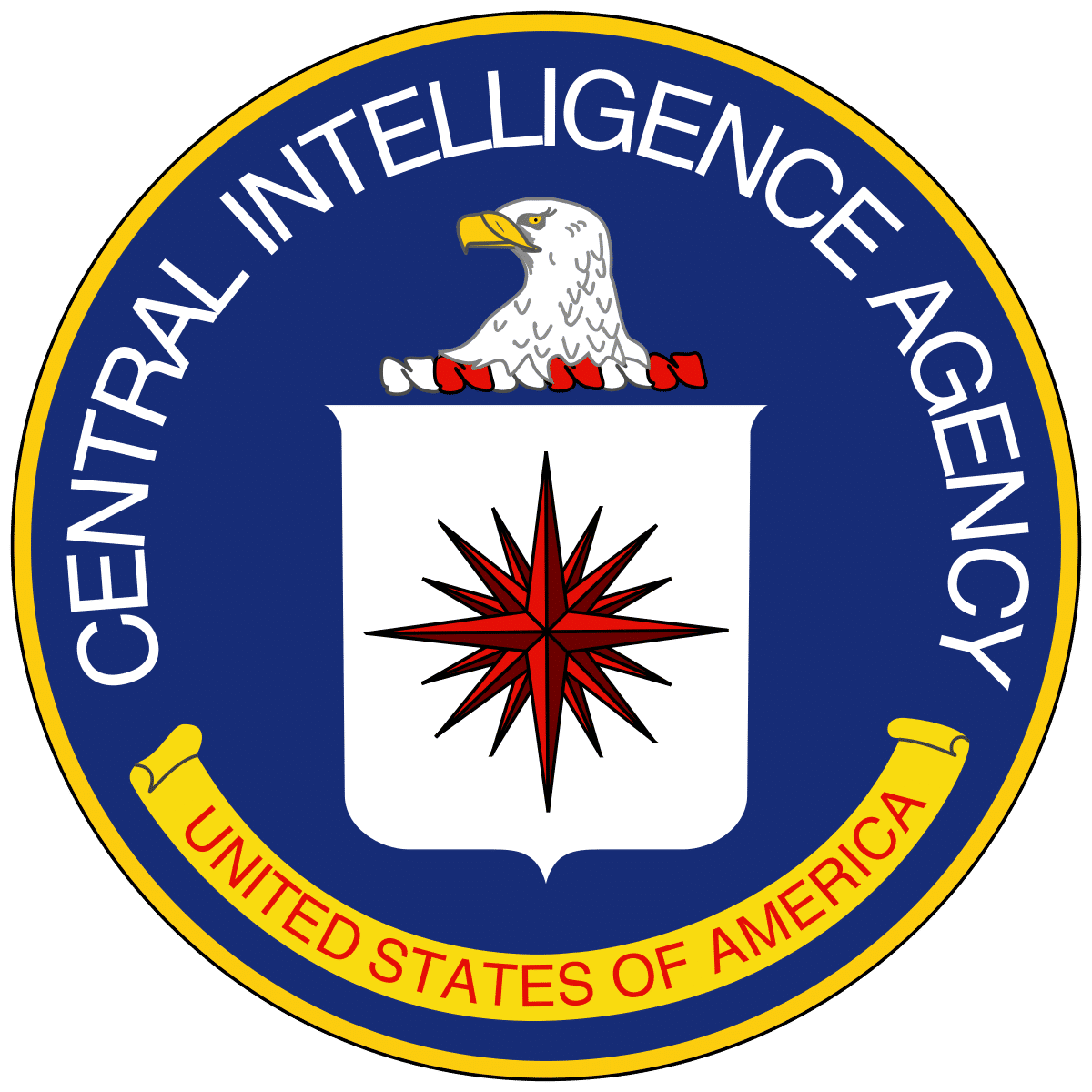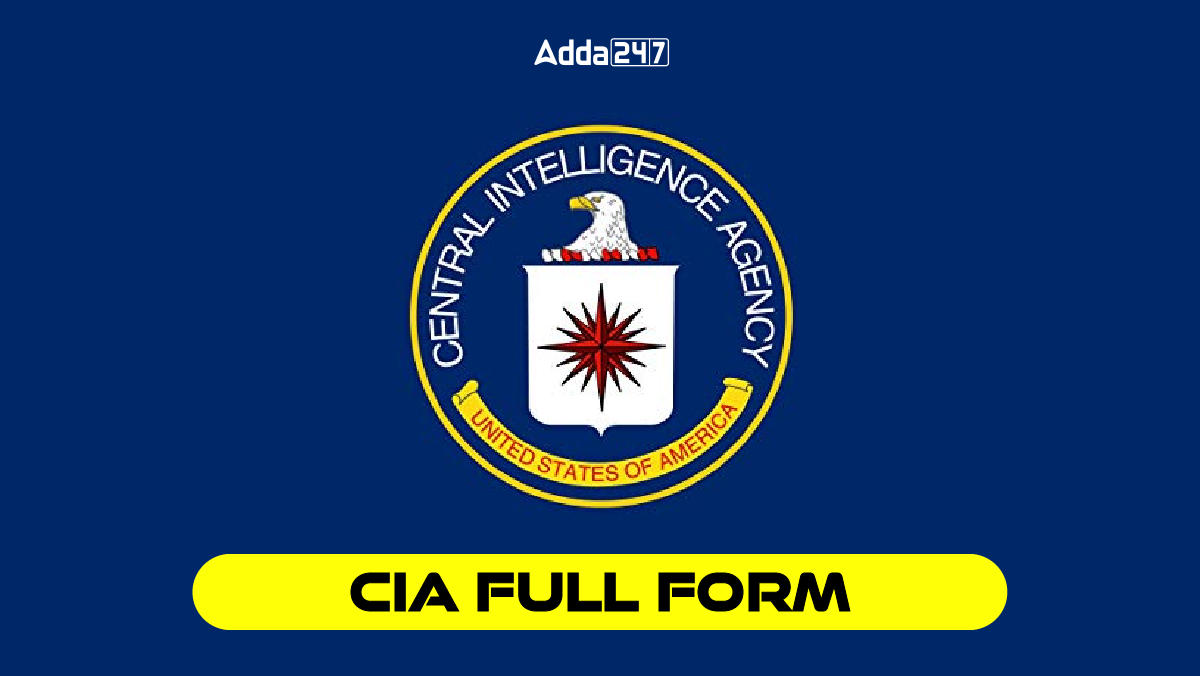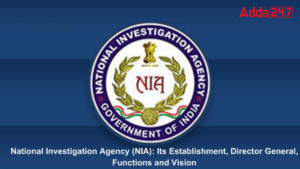CIA Full Form
The full form of CIA is Central Intelligence Agency. It is a U.S. government agency responsible for gathering and analyzing information to help protect the country’s security. Let’s understand the CIA full form in simplified manner:
C – Central: It is the main intelligence agency for the United States.
I – Intelligence: CIA collects and studies information from around the world to understand what’s happening and what might be a threat to the U.S.
A – Agency: It is an organization that carrier out these intelligence activities.
What is Central Intelligence Agency (CIA)?
The Central Intelligence Agency (CIA), often referred to simply as the CIA, is a prominent civilian foreign intelligence service in the United States. Formed in 1947 as per the National Security Act, the CIA is a key player in upholding national security by gathering crucial information, offering insights and taking essential measures. Headquartered in the George Bush Center for Intelligence in Virginia, the agency is tasked with the collection and analysis of foreign intelligence, contributing significantly to the shaping of US policies concerning national security.
Logo of Central Intelligence Agency (CIA)

The CIA’s logo features a central blue shield with a white bald eagle, its wings outstretched, holding an olive branch in one talon and arrows in the other, symbolizing both intelligence and national defense. The agency’s name is displayed in gold letters above the eagle, alluding to its mission of protecting and serving the United States.
Mission and Visions of CIA
The CIA’s mission and vision are at the core of its existence. The agency’s vision is to provide tactical and strategic advantages to the United States through information, insights and actions. To achieve this vision, it has a multi-faceted mission:
- Preventing Threats: The CIA takes actions to prevent threats and further US national security objectives through intelligence.
- All-Source Analysis: It conducts objective all-source analysis, which means gathering information from various sources to provide a comprehensive view of security issues.
- Covert Actions: The CIA conducts effective covert actions as directed by the President to address critical issues.
- Safeguarding Secrets: An essential part of its mission is to safeguard the secrets that are vital to the nation’s security.
Ethics of Central Intelligence Agency (CIA)
CIA officers adhere to a professional ethos that encompasses several guiding principles:
- Service: Putting the nation first, the agency before individual units and the mission before self.
- Integrity: Maintaining the highest standards of lawful conduct and providing information without any institutional or political bias.
- Excellence: Striving for excellence by leveraging diverse backgrounds and expertise to excel in all endeavors.
- Courage: Accomplishing difficult tasks and not shying away from risk when necessary.
- Teamwork: Supporting and standing by each other, promoting collaboration.
- Stewardship: CIA personnel are entrusted with the responsibility to protect sources and methods, ensuring they remain secure.
Offices of the CIA
The CIA is structured into several offices, each with specific functions:
- Directorate of Intelligence: Responsible for collecting and analyzing intelligence data to provide valuable insights to policymakers.
- Directorate of Support: Handles logistics, technical support and administrative services for the CIA’s operations.
- National Clandestine Service: This is the covert operations branch responsible for clandestine activities such as espionage, intelligence gatherings and covert actions.
- Directorate of Science and Technology: Focused on developing and utilizing cutting-edge technologies to support CIA missions.
- Offices of the Direction: These offices provide overall leadership, guidance and coordination for the agency.
Functions of the Central Intelligence Agency (CIA)
The CIA plays a critical role in ensuring national security through the following functions:
- Information Gathering: Identifying problems and collecting foreign intelligence that is essential for shaping US policies, specifically those related to national security.
- Analysis: Carefully analyzing gathered intelligence to provide informed recommendations to the President and other US government policymakers.
- Threat Prevention: Monitoring and studying intelligence issues, such as the plans of terrorist organizations or the activities of countries with biological or chemical weapons, to prevent potential threats.
- Adaptability: Carrying out various functions and duties as directed by the President of the Director of National Intelligence to respond to evolving national security challenges.
Find More General Studies News Here



 Who is the Inventor of the Gramophone?
Who is the Inventor of the Gramophone?
 What is the State Song of Andhra Pradesh...
What is the State Song of Andhra Pradesh...
 National Investigation Agency (NIA): Its...
National Investigation Agency (NIA): Its...
